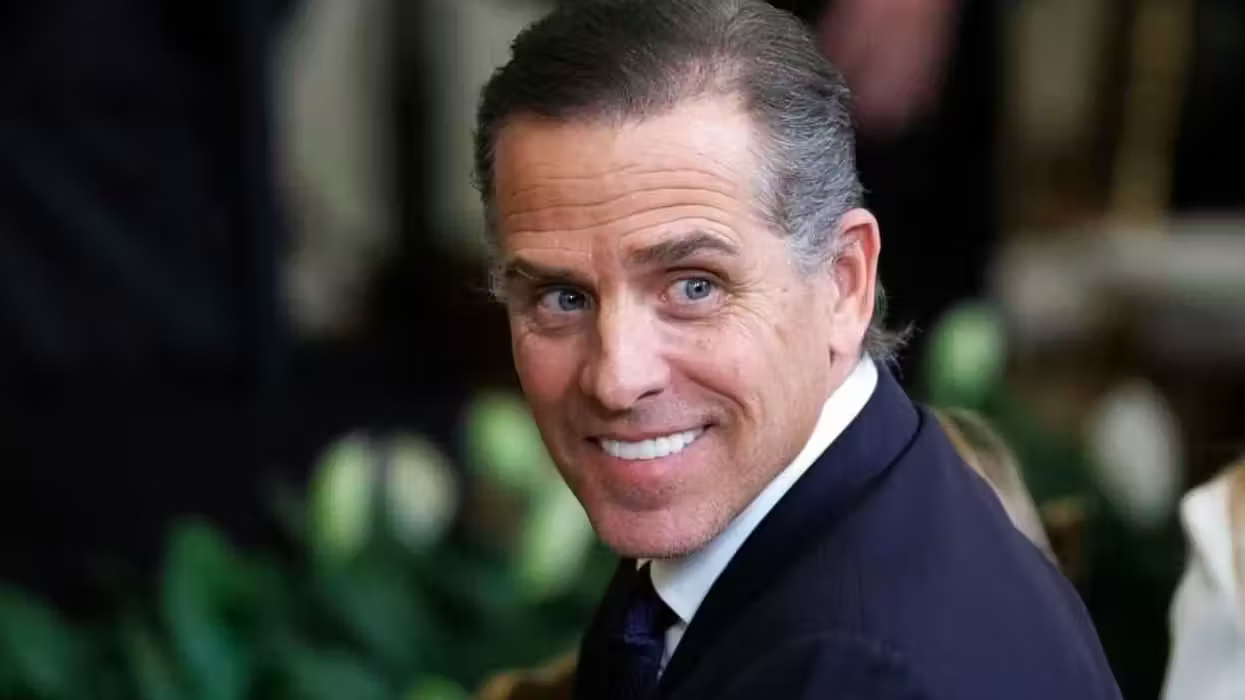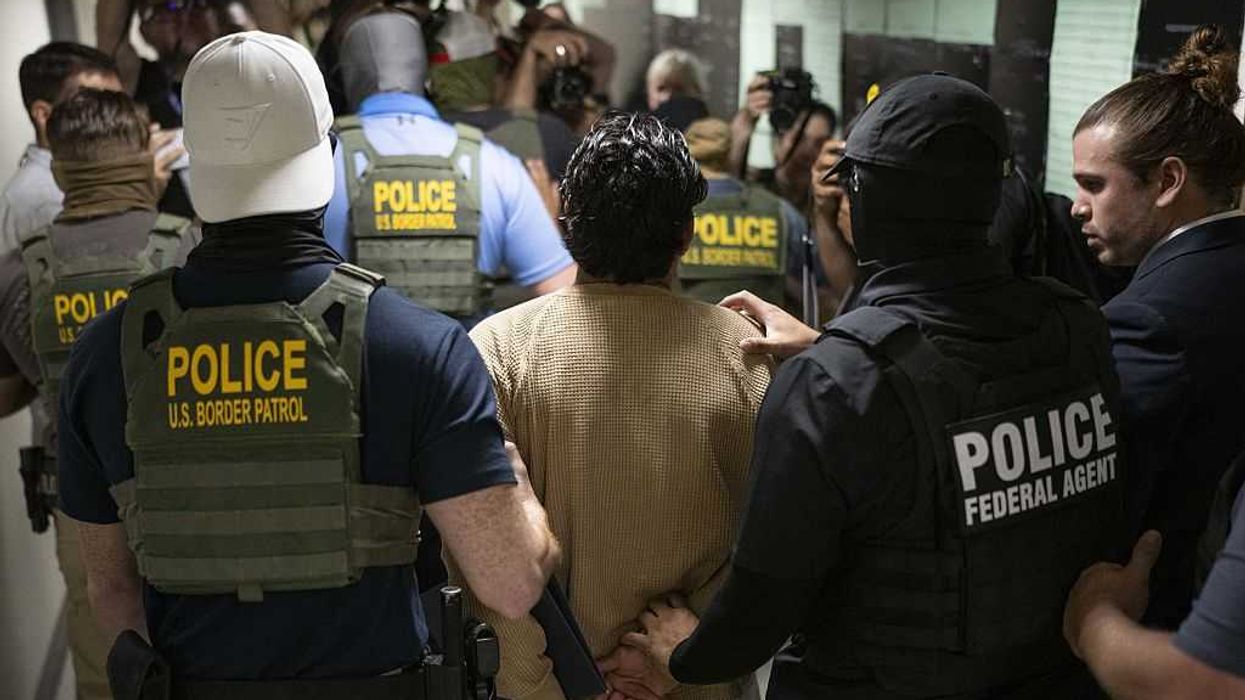
© 2025 Blaze Media LLC. All rights reserved.
Proposal in New Highway Bill Would Mandate Trackers on Semis -- and Some Truckers Aren't Happy
May 18, 2012
"mandatory recording of such information presents opportunity for abuse."
- A measure in the Surface Transportation Extension Act requiring electric on-board recorders (EOBRs) has small business and independent truckers concerned they will be too expensive for them to implement and an invasion of privacy.
- Some consider the the EOBRs a measure that would increase highway safety and ensure fair business practices.
- But others call it "big brother" that could also be a tool of the unions to put small business truckers out of work.
- EOBRs would replace traditional paper tracking of hours of service. These hours of service are monitored to help prevent fatigue-related accidents.
- The Surface Transportation Extension Act expired in Oct. 2009 and has received nine extensions as Congress tries to reach an agreement on the funding legislation. The act will need to pass by June 30 or receive another extension.

Although the Keystone Pipeline may be the main focus of the Surface Transportation Extension Act, which needs to be passed by Congress by the end of June, another provision has those in the trucking industry truckers concerned. It's a measure that would require electronic on-board recorders (EOBRs) on rigs, which some truckers say are burdensome, costly and do not improve highway safety.
(Related: Here's what you need to know about the gov't possibly mandating vehicle 'black boxes')
EOBRs are proposed in this highway transportation act as a measure that would help record hours of service, which truckers traditional report on paper.

Including these devices would cut down on violations of hours of service that could result in fatigue-related accidents. In 2010, the U.S. Department of Transportation's Federal Motor Carrier Safety Administration passed a rule that would require violators working too many hours to be outfitted with EOBRs. In 2011, it expanded this rule to include all trucks tracking their work hours in this manner.
That mandate, however, was overturned in August 2011 by the federal Court of Appeals for the Seventh Circuit because the "agency said nothing about the requirement that any regulation about the use of monitoring devices in commercial vehicles must ‘ensure that the devices are not used to harass vehicle operators.’"
The mandate reappeared in the highway surface transportation funding legislation, which has until June 30 or the current law and bill will receive another extension. The News-Leader describes the proposed mandate as a "little-noticed provision causing a big fight within the trucking industry." The Owner-Operator Independent Drivers Association, a trade association representing the interests of small-business trucking professionals and drivers, is one such organization protesting this measure calling installation of EOBRs a move by "Big Brother." It also stated that "EOBRs are an unproven technology, providing no cost benefit or highway safety improvement."
“It’s exorbitantly expensive while providing no safety benefit whatsoever,” Todd Spencer, OOIDA executive vice president, said in a statement in April. “This is being done under the guise of compliance with federal hours-of-service regulations, but it is actually a way for large motor carrier companies to squeeze more ‘productivity’ out of drivers and increase costs for the small trucking companies they compete with."
It is estimated the provision would cost $2 billion if enacted. The Heritage Foundation has more on the costs and how the mandate would affect businesses:
And these costs would be high, totaling more than $2 billion each year, according to an analysis by the FMCSA, making it one of the most expensive regulations in the regulatory pipeline. This new burden would significantly add to the already eye-popping $46 billion in annual regulatory costs imposed since the start of the Obama Administration. Overall, according to FMCSA, the proposed mandate would affect some 500,000 firms and close to 4 million vehicles.
Spencer said that EOBRs are no more reliable than traditional log books and don't as accurately account for time given that the "device only tracks when the wheels are moving, not taking into consideration the colossal waiting times spent by truck drivers at shipping docks." Heritage also points out the mandate requires the devices to have real-time tracking capability to record time and location data for the truck. It states, "mandatory recording of such information presents opportunity for abuse."
WEAR-TV in Pensacola, Fla., reports some independent truckers saying they consider the black box-like devices privacy violation:
Mary Waters and her husband have been driving big rigs for the past 28 years. They still use paper logs to record their driving times. They say if they use the electronic recorder it would be an invasion of their privacy."It just causes a hardship," explains Waters. "We're a team so there is nobody out there trying to get around as far of the driving hours, but they seem to think we have totally deep pockets out here."
The News-Leader reports Rob Abbott, vice president of safety policy at the American Trucking Association, as conceding there are some privacy concerns, but in reality it would only help to inform business owners of their driver's potentially unrelated work activity conducted while using the truck:
“If I’m at the casino or the racetrack, my employer will know that,” he said. But he added that the owner of a rig has a right to know where his equipment is.
In a more recent press release the OOIDA said it found the support of the provision by the International Brotherhood of Teamsters -- a labor union -- as further evidence that larger corporations were behind this measure in bill.
“But support coming from the Teamsters, who filed comments to the government in 2007 opposing EOBRs, proves that this is more about attacking independent contractors and small businesses than safety,” Spencer said.
The News-Leader reports some larger trucking companies who have already voluntarily installed the tackers into their trucks support the mandate because they hope it would encourage fair business practices. Don Lacy with Prime Inc., a company with 4,400 trucks, said those using paper logs can misrepresent how many hours they've actually driven and therefore get away with cheaper rates.
TruckingInfo notes if the budget is not passed by June 30 and it receives another extension, this will be its 10th. The program expired in Oct. 2009.
Want to leave a tip?
We answer to you. Help keep our content free of advertisers and big tech censorship by leaving a tip today.
Want to join the conversation?
Already a subscriber?
more stories
Sign up for the Blaze newsletter
By signing up, you agree to our Privacy Policy and Terms of Use, and agree to receive content that may sometimes include advertisements. You may opt out at any time.
Related Content
© 2025 Blaze Media LLC. All rights reserved.
Get the stories that matter most delivered directly to your inbox.
By signing up, you agree to our Privacy Policy and Terms of Use, and agree to receive content that may sometimes include advertisements. You may opt out at any time.





